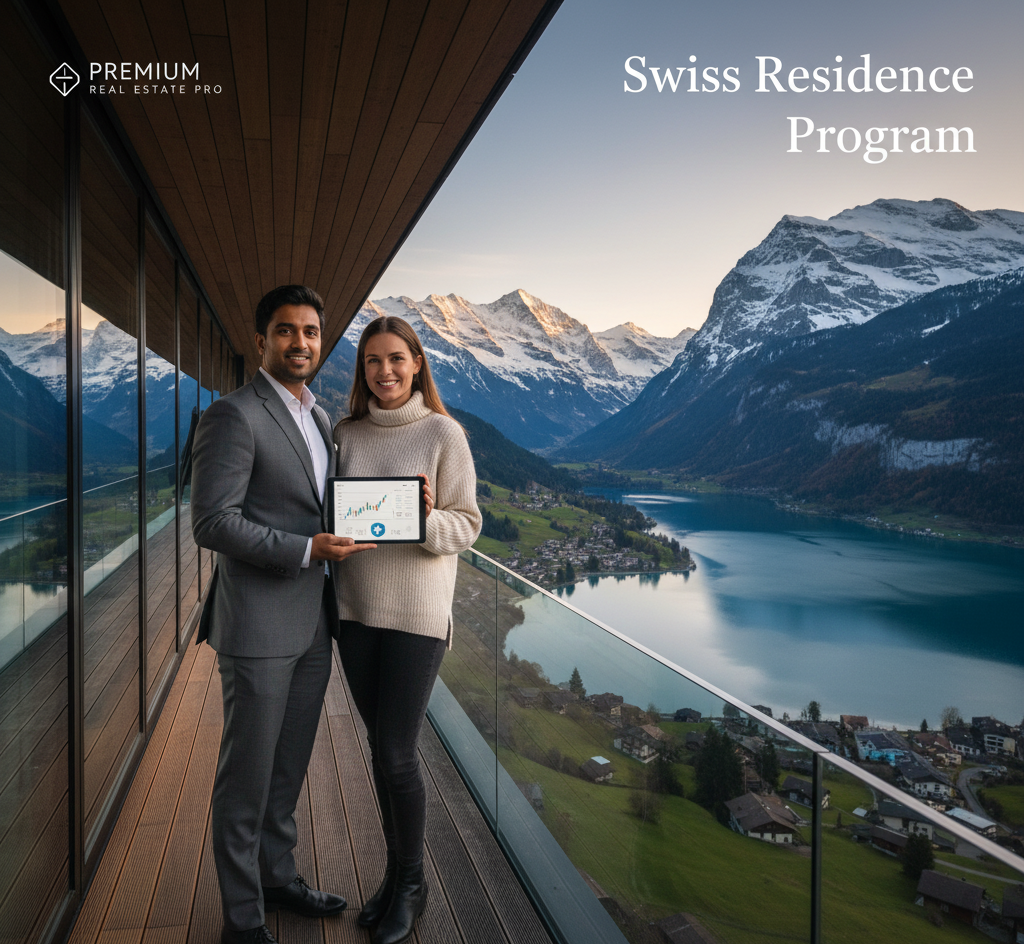Switzerland, a land synonymous with precision, prosperity, and breathtaking natural beauty, stands as a beacon of stability and high quality of life in the heart of Europe. For discerning individuals and families seeking to establish residency in a country that consistently ranks among the world’s best, the Swiss Residence Program offers a compelling suite of options.
Unlike traditional investor visa programs focused solely on large capital injections, Swiss residency routes emphasize financial self-sufficiency, entrepreneurial spirit, or a significant contribution through taxation. This guide aims to demystify the various pathways to acquiring Swiss residency, outlining the requirements, benefits, and the unparalleled lifestyle that awaits in this Alpine nation.
Why Choose Swiss Residency? The Unparalleled Advantages
Opting for a Swiss Residence Program is an investment not just in a place, but in a lifestyle characterized by exceptional standards and unique opportunities.
- Exceptional Quality of Life: Switzerland consistently ranks at the top for quality of life, offering pristine environments, excellent public services, and a harmonious blend of cultures.
- Economic & Political Stability: Benefit from one of the world’s most stable economies and a robust, reliable political system.
- Strategic Location in Europe: Positioned centrally in Europe, Switzerland provides easy access to major European cities, fostering both personal travel and business expansion.
- World-Class Education & Healthcare: Access to some of the finest international schools and an advanced healthcare system.
- Favorable Tax Environment: While not a “tax haven” for all, Switzerland offers competitive tax regimes, particularly for foreign residents under certain programs.
- Safety & Security: Enjoy an exceptionally safe and secure environment, with low crime rates.
Key Pathways to Swiss Residence
Switzerland offers several avenues for foreign nationals to establish residency, each with specific requirements tailored to different profiles. The most common and accessible routes include:
1. Lump-Sum Taxation (For Non-Working Individuals) This is often referred to as the “Swiss Golden Visa” in popular discourse, though it’s not a direct visa-for-investment program in the traditional sense.
- Eligibility: Typically for individuals who do not wish to be gainfully employed in Switzerland.
- Mechanism: Instead of being taxed on worldwide income and assets, residents agree to an annual lump-sum tax payment (based on their estimated living expenses, typically 5-7 times the annual rent). This amount is negotiated with the cantonal tax authorities.
- Investment: While there is no direct investment requirement for the visa itself, applicants must demonstrate sufficient financial means to support themselves without working, and they must contribute a significant amount in annual taxes.
- Cantonal Variation: The specific lump-sum amount and conditions vary significantly between cantons (e.g., Vaud, Geneva, Ticino, Valais are popular choices).
2. Company Formation / Business Immigration (For Entrepreneurs) This route is for individuals wishing to establish or invest in a Swiss company and be actively involved in its operations.
- Eligibility: Entrepreneurs with a viable business plan that can create jobs and contribute to the local economy.
- Mechanism: The applicant must form a new Swiss company or acquire an existing one, demonstrating the economic benefit it will bring to the canton. The founder must be actively involved in the management of the company.
- Investment: While there’s no fixed minimum investment for the visa, the company must be adequately capitalized (e.g., minimum CHF 20,000 for an LLC/GmbH or CHF 100,000 for an AG/SA). A robust business plan demonstrating capital commitment is crucial.
- Job Creation: Demonstrating potential for job creation for Swiss residents or contributing to technological advancement is a strong factor.
3. Retirement (For Individuals Over 55) This pathway is for financially independent individuals over a certain age.
- Eligibility: Typically for non-EU/EFTA citizens aged 55 or older.
- Mechanism: Applicants must prove sufficient financial resources (often a substantial private pension or assets) to live in Switzerland without working. They must also have strong ties to Switzerland (e.g., previous visits, family) or a clear reason for choosing to retire there.
- No Work Clause: Retirees are generally not permitted to engage in gainful employment in Switzerland.
The Application Process: A Multi-Stage Journey
The Swiss residency application process is rigorous and highly individualized, often requiring professional guidance.
1. Cantonal Selection & Initial Contact: The choice of canton is critical, as laws and requirements vary. Initial contact is made with the cantonal immigration and tax authorities to understand specific local requirements.
2. Prepare Documentation: Gather all required personal documents (passport, birth/marriage certificates), financial proofs, business plans (for entrepreneurs), and any other supporting materials.
3. Visa Application (D-Visa for Long-Term Stay): Once cantonal approval or preliminary agreement is secured, a national D-Visa is applied for at the Swiss Embassy/Consulate in your home country.
4. Entry to Switzerland & Residency Permit Application: Upon arrival with the D-Visa, applicants must register with the local commune and apply for their formal residence permit (usually a B permit, initially for one year, renewable).
5. Ongoing Compliance: Maintain compliance with the conditions of your residency permit, including tax payments (for lump-sum) or active business management (for entrepreneurs).
Key Considerations for Aspiring Swiss Residents
- Cantonal Autonomy: Switzerland’s federal structure means that requirements can differ significantly between its 26 cantons. Researching and choosing the right canton is paramount.
- Professional Guidance: Due to the complexity of Swiss immigration and tax laws, engaging experienced legal and tax advisors is highly recommended.
- Integration: While not always a formal requirement, demonstrating a willingness to integrate into Swiss society (e.g., learning a local language) can be beneficial.
- Not a Citizenship Route: Swiss residency is a long-term stay. Citizenship is a separate and lengthy process, typically requiring 10 years of continuous residency, successful integration, and language proficiency.
The Swiss Residence Program offers an extraordinary opportunity to live in a country synonymous with excellence. While the path to residency is demanding, the rewards—a stable, secure, and high-quality life in one of the world’s most beautiful and prosperous nations—are immeasurable. For those who meet the stringent criteria, Switzerland represents not just a new home, but a legacy.







